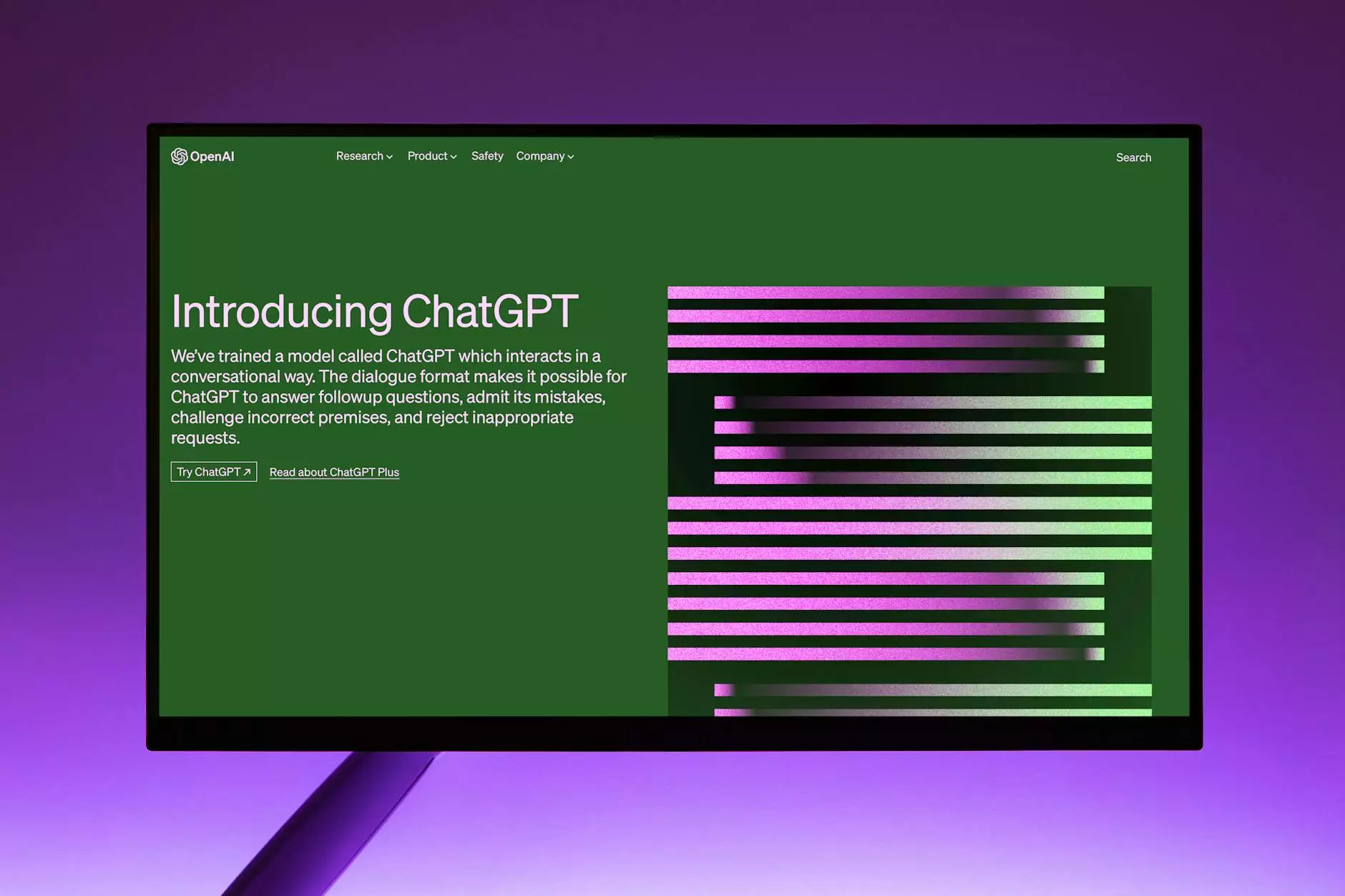The Transformative Power of AI Writing Papers in Education

Artificial Intelligence (AI) has emerged as a cornerstone of modern educational solutions, enhancing the ways students learn and teachers instruct. In this article, we will delve into how AI writing papers is revolutionizing the educational landscape, particularly in the realms of education services and special education. The implications of AI in enhancing academic performance, accessibility, and engagement are profound and merit a thorough exploration.
Understanding AI in Education
As we continue to evolve in a digital age, the role of technology in education is becoming increasingly significant. AI is at the forefront of this transformation. From smart tutoring systems to automated essay writing, AI is reshaping the way educational content is delivered and consumed.
The Role of AI Writing Tools
AI writing tools have been designed to assist students in various ways. They offer suggestions, generate content, and help refine writing skills. This technology isn’t just about creating text; it is about enhancing critical thinking and creativity. Here are some key functionalities of AI writing tools:
- Content Generation: Able to produce essays, reports, and assignments based on user input.
- Grammar and Style Checking: Identifying errors and providing stylistic suggestions to improve writing quality.
- Research Assistance: Offering resources and references to support claim-making in written assignments.
Advantages of AI Writing Papers in Education
The implementation of AI writing papers brings a multitude of advantages that directly benefit students, educators, and institutions alike. Below, we explore some of the most significant advantages:
1. Enhanced Learning Experiences
AI tools can cater to the individual learning styles of students. By analyzing patterns and difficulties, these tools can adapt the learning material to better fit the needs of each student, promoting an enhanced educational experience.
2. Support for Special Education
Special Education often requires tailored resources for diverse learning needs. AI writing papers can provide personalized assistance that caters to individual challenges, ensuring that all students, regardless of their educational requirements, have access to quality learning materials.
3. Time Efficiency
Writing assignments can be time-consuming and overwhelming. AI assists in making this process quicker and more efficient, allowing students to focus on their understanding of the material rather than the mechanics of writing itself.
4. Improved Writing Skills
By offering instant feedback and suggestions, AI writing tools can help students improve their writing skills. They can learn from corrections and recommendations provided by the AI, leading them to become not just better writers, but also more critical thinkers.
The Technology Behind AI Writing Papers
Understanding the technology driving AI writing papers is crucial to appreciating its capabilities. Here are some of the core components:
Natural Language Processing (NLP)
NLP is a field of AI that focuses on the interaction between computers and human language. It enables AI to understand, interpret, and generate human language, which is essential for writing assistance tools. NLP processes linguistic structures to comprehend meaning, context, and tone.
Machine Learning
Machine learning algorithms allow AI systems to learn from vast datasets of existing text. This continual learning process helps the software improve its writing capabilities, making it more adept at producing high-quality content over time.
Integrating AI Writing Tools in Educational Services
Educational services must evolve by integrating AI tools effectively. Here’s how institutions can seamlessly incorporate AI writing papers into their curriculum:
1. Training Educators
Teachers must be equipped with the knowledge and skills to utilize AI tools effectively. Providing professional development opportunities focused on AI literacy can help educators understand the benefits and limitations of these technologies.
2. Curriculum Integration
AI tools should not be supplementary but integrated into the core curriculum. By embedding writing tools into assignments, educators can enhance the overall learning experience.
3. Setting Guidelines for Use
To maximize the benefits of AI writing tools while maintaining academic integrity, clear guidelines should be established. Students must understand how to use AI as an aid rather than a crutch.
Challenges and Considerations
While AI writing papers offer a wealth of opportunities, several challenges must be addressed:
1. Understanding Limitations
AI has limitations, and users must recognize that it may not always produce perfect results. Educators should teach students to critically evaluate AI-generated content.
2. Ensuring Access
Equitable access to technology is vital. Institutions must ensure that all students have access to AI writing tools, particularly in under-resourced communities.
3. Addressing Ethical Concerns
Concerns about plagiarism and academic honesty must be taken seriously. Establishing a culture of integrity is essential when integrating AI tools into education.
The Future of AI Writing Papers in Education
The future of education is closely tied to the advancements in AI technology. As AI writing papers continue to evolve, we can expect transformative changes that will redefine traditional educational models.
1. Personalized Learning
The personalization of education through AI will become even more pronounced. Expect tailored educational pathways that adapt to the progress and needs of individual students.
2. Blended Learning Environments
Future classrooms will likely blend traditional teaching methods with AI-driven tools, creating a hybrid educational experience that maximizes the strengths of both approaches.
3. Greater Collaboration Between Students and AI
As AI tools become more integrated into the learning process, we will see enhanced collaboration between students and technology, fostering a more interactive and engaging educational environment.
Conclusion: Embracing AI Writing Papers for a Better Educational Future
In conclusion, integrating AI writing papers into the educational framework holds monumental promise for enhancing learning experiences and providing crucial support to students. As we aim to embrace the digital transformation in education, it is imperative for educators, institutions, and policy-makers to recognize the value of AI and implement it responsibly and ethically. The future of education is bright, and with AI writing tools, we can create an inclusive, engaging, and effective learning environment for all students.
For more insights on AI writing papers and how they can enhance educational services, visit thesify.ai.









